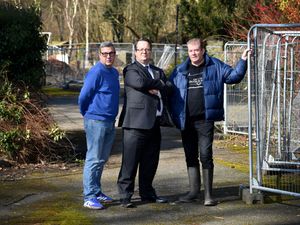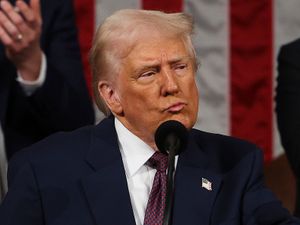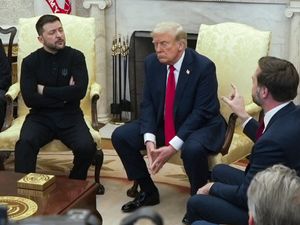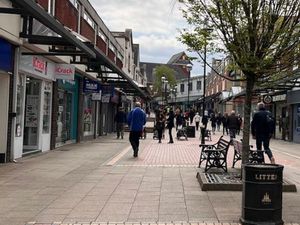EU officials allowed at NI border checks but UK vetoes ‘mini’ Brussels embassy
Cabinet Office minister Michael Gove was outlining what the Northern Ireland Protocol agreement means for the region.

There will be no European Union embassy in Northern Ireland but Brussels officials will be permitted at border checks in the region once the transition period ends, a senior minister has confirmed.
Michael Gove told MPs that the agreement at the UK-EU joint committee this week over the Northern Ireland Protocol would allow “unfettered access” for businesses to access the market in Great Britain.
He said the UK had vetoed the bloc’s bid to have a base in Northern Ireland but that EU customs officials would be permitted to have a presence in the region.
He confirmed that there would be a three-month “grace period” for supermarkets and traders “in order to make sure that they are ready for any health export certificate requirements”.
The Cabinet Office minister said the breakthrough meant the controversial clauses in the Internal Market Bill, which the Government had previously admitted broke international law, would be removed.
The announcement in the House of Commons follows progress on Tuesday in talks led by Mr Gove and Maros Sefcovic from the European Commission.
Mr Gove said: “The agreement respects the protocol provisions, endorsed by Parliament, that allows some EU officials to be present at Northern Ireland ports as UK authorities carry out our own procedures.
“And let me be clear, there will be no Belfast mini embassy or mission as some in the EU originally sought and the EU officials will not have any powers to carry out checks themselves.”
The protocol is due to come into effect from the start of next year and is set to keep Northern Ireland in line with some EU regulations on the single market to allow an open border and free flow of goods and services across the island.
The debate over the protocol’s implementation has caused acrimony between the two sides, with the EU starting legal action over clauses in the Internal Market Bill which would have overridden parts of the Brexit agreement relating to trade between Northern Ireland and Great Britain.
But Mr Gove told the Commons on Wednesday that “such provisions are no longer required” and that they would be removed from the Bill.
He said the accord would spare the region from damaging tariffs that could have hiked supermarket prices, and said there would be no additional red tape applied on businesses in Northern Ireland.
The Chancellor of the Duchy of Lancaster added: “This deal protects unfettered access for Northern Ireland businesses to their most important market, as the Prime Minister underlined.”
Labour said the documents released by the Government suggested there would be a “range of checks” coming in and that there could be further upheaval in the new year.
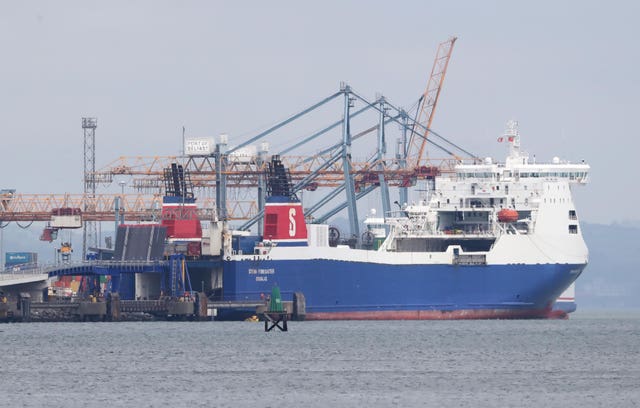
Boris Johnson has previously vowed not to agree to terms that would allow checks to be carried out on goods travelling between Northern Ireland and Great Britain, telling businesses to personally phone him if border officials asked to see their papers.
Rachel Reeves, Opposition shadow minister to Mr Gove, said: “Could the minister explain why today’s documents confirm that on trade from GB-NI, there will indeed be a range of checks and indeed the trusted trader scheme will be removed after three-and-a-half years and reviewed then, with further uncertainty at that point.
“And indeed the exemption of agri-food checks are only available for three months. So can the minister tell us what guarantees there are with prices and availability of fresh food supplies in Northern Ireland after April 1, and will custom checks be required just three months into 2021?
“This all begs the question, did the Prime Minister actually know what he had signed up to last year and gave false assurances to this House or did he simply not care?”
The joint committee work has been separate from the post-Brexit trade talks but Mr Gove told Sky News that the protocol breakthrough meant there was a “smoother glide path” towards a potential deal with Brussels.
The Prime Minister was due to dine with commission president Ursula von der Leyen in the Belgian capital on Wednesday in a bid to break the impasse in the negotiations.

